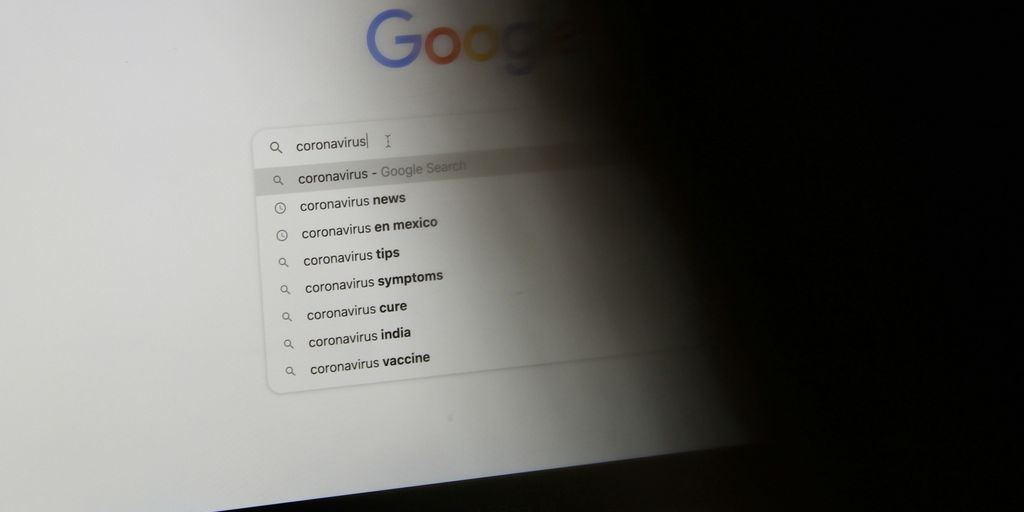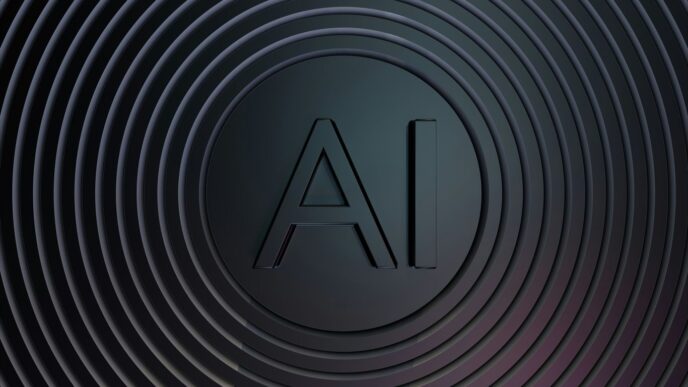Unlocking Your Memories with Google AI Search Photo
Google Photos has always been a pretty good way to keep your pictures organized, but this new ‘Ask Photos’ feature is really changing the game. It uses Google’s Gemini AI, which means you can now search through all your photos using regular, everyday language. Think about it – no more trying to remember exact dates or keywords. You can just ask questions like, ‘Show me pictures of my dog playing fetch’ or ‘What did we eat on our vacation to the beach last year?’ It’s pretty neat how it understands context, places, and even the general vibe of a photo.
Introducing Ask Photos: A New Era for Google Photos
This new way of searching feels like a big step forward for Google Photos. Instead of just typing in simple terms like ‘birthday’ or ‘park,’ you can now ask more detailed questions. For example, you could ask, ‘Find the best photos from my trip to Italy in 2023’ or ‘Show me all the pictures of my cat sleeping.’ The AI is designed to understand these kinds of natural language requests, making it much easier to find exactly what you’re looking for without a lot of fuss. It’s like having a personal assistant for your entire photo library.
How Google AI Search Photo Leverages Gemini
At its core, Ask Photos uses Google’s Gemini AI model. This AI is really good at understanding what’s actually in your pictures. When you ask a question, Gemini looks through your photos, considering things like where they were taken, who is in them, and even how good the photo quality is. So, if you ask for ‘birthday party photos,’ it can figure out what looks like a party and pick out the best shots from those events. It’s a smart way to sort through potentially thousands of images to find those specific moments you care about. You can even back up your photos using Google Photos to keep them safe.
Natural Language Search for Your Photo Library
What this really means is that searching your photos becomes much more intuitive. You don’t need to be a tech wizard or remember specific search commands. You can just talk to your photo library, in a way. This makes finding specific memories, like ‘that time we went hiking in the mountains’ or ‘photos of my graduation,’ much simpler. It’s a big change from just scrolling through endless albums or relying on basic keyword searches that might miss the mark. The goal is to make accessing your memories as easy as recalling them.
Navigating Your Memories with Advanced Search Capabilities
Remember digging through endless rolls of film or scrolling for ages on your phone to find that one specific picture? Google Photos’ new AI search, powered by Gemini, really changes that game. It’s like having a personal assistant for your entire photo collection, understanding what you’re actually looking for, not just matching keywords.
Finding Specific Moments with Contextual Queries
This is where the AI really shines. Instead of just typing "beach," you can ask things like, "Show me photos from my beach trip to Hawaii in 2023." The system looks at dates, locations, and even the content of the photos to pull up exactly what you need. It’s pretty neat for recalling specific events or even just a feeling. It’s about finding the story behind the photos, not just the photos themselves.
Searching by People, Places, and Themes
Beyond simple searches, you can get quite detailed. Want to see all the times your dog, Buster, was at the park? Easy. Need to find pictures from your cousin Sarah’s birthday parties over the years? The AI can group those together. It can even identify themes, like "all my Christmas decorations" or "photos from my hikes last summer." It’s surprisingly good at recognizing recurring events and people, making it simple to revisit specific parts of your life.
Here’s a quick look at what you can search for:
- People: Find photos of specific friends or family members.
- Places: Search for trips to cities, countries, or even specific landmarks.
- Events: Look for birthdays, holidays, or other gatherings.
- Themes: Identify photos related to activities like "camping," "cooking," or "concerts."
- Objects: Find pictures of your car, your favorite food, or even your pet.
Complex Searches Made Simple
What used to require multiple searches or a lot of manual sorting can now be done in one go. Imagine asking, "Find photos of my family at the lake house from the summer of 2022, specifically when we were fishing." The AI can process that kind of multi-layered request. It’s not just about finding a picture; it’s about retrieving a specific memory with all its associated details. This makes revisiting your past feel much more organized and less like a chore.
The Evolution of Google Photos Search
Google Photos has always been pretty good at letting you find your pictures, but it’s really changed a lot lately. Remember when you had to type in exact keywords like "beach" or "birthday" and hope for the best? Those days are mostly behind us. The big shift is the introduction of ‘Ask Photos,’ which uses Google’s Gemini AI to understand what you’re actually asking for, not just what words you type.
What’s New and Improved in Google Photos AI
This new AI search is a pretty big deal. Instead of just basic keyword matching, you can now ask questions in plain English. Think about asking, "Show me pictures of my dog playing in the park last summer," or "What did we eat on our trip to Italy in 2023?" The AI can figure out context, dates, locations, and even themes within your photos. It’s like having a personal assistant who knows your entire photo library inside and out. Google is also trying to make it easier to find creative tools by adding a new ‘Create’ tab, though some of us just want to find old photos, not make new ones.
Comparing Traditional Search with AI-Powered Search
Let’s break down how different this is. Traditional search was all about keywords. You typed ‘dog,’ and you got pictures tagged with ‘dog.’ Simple, but often not enough. AI-powered search, on the other hand, understands intent. If you ask for "photos from my last birthday," it can look at dates, people tagged, and even common birthday themes to find the right shots. It’s a huge leap from just matching words to understanding meaning.
Here’s a quick look at the differences:
| Feature | Traditional Search | AI-Powered Search (Ask Photos) |
|---|---|---|
| Input Method | Keywords | Natural Language Questions |
| Understanding | Keyword Matching | Context, Intent, Themes |
| Complexity of Queries | Limited | High |
| Result Accuracy (often) | Variable | Improved |
User Control and Opt-Out Options
Google knows that not everyone wants to use every new feature. If you prefer the old way of searching, or if you’re just not ready for AI to dig through your memories, you can opt out. You can usually find this option in your app settings. Just look for something like "Search with Ask Photos" and toggle it off. This gives you the choice to use the new AI features or stick with the classic search methods, which is pretty good for user control. It means you can try it out and if it’s not for you, you can easily go back to how things were.
Understanding the Technology Behind Google AI Search Photo
So, how does this whole "Ask Photos" thing actually work? It’s pretty neat, really. Google is using its Gemini AI model, which is basically a super smart system designed to understand what’s in your pictures. Think of it like a really observant friend who remembers everything.
How Gemini AI Analyzes Your Images
When you type in a question, like "Show me photos from my trip to the beach last summer," Gemini gets to work. It doesn’t just look for keywords; it actually looks at the content of your photos. This means it can figure out if there’s a beach, if it’s summer, and even if you were there last year. It’s pretty good at spotting things like people, places, and even the general vibe of a photo. For example, if you ask for your dog’s best photos, it can sort through them and pick out the ones where your furry friend looks particularly happy or is doing something funny. It’s a big step up from just typing "dog" and getting every single picture you’ve ever taken of your pet.
The Role of Location and Metadata
Location data and other bits of information, called metadata, play a big part too. If your photos have location tags, Gemini can use that to help find pictures from specific places. It also looks at dates and times. So, if you ask for photos from a certain year or even a specific month, it can use that information. Sometimes, it might even use information about who is in the photo if you’ve set up face grouping. This combination of visual analysis and data helps it narrow down what you’re looking for. It’s like giving it a few clues to solve a puzzle. For instance, asking about when you saw specific friends can be much more accurate if the AI knows where and when those photos were taken. This is similar to how companies are advancing space travel, making complex journeys more manageable Virgin Galactic’s new spaceship.
Ensuring Accuracy and Relevance in Results
Google is always working to make these results better. They look at how well the AI understands your requests and how relevant the photos it shows you are. If you ask for something and it doesn’t quite get it right, that feedback helps them improve the system. They want to make sure that when you ask a question, you get the photos you’re actually looking for, not just a random collection. It’s a process of constant learning for the AI. The goal is to make finding your memories as easy as asking a friend. You can even help by making sure your photos are organized and that you’ve set up features like face grouping, which gives the AI more information to work with.
Availability and User Experience

So, when can you actually start using this new AI search in Google Photos? Well, it’s a bit of a staggered rollout, meaning not everyone gets it at once. Right now, it’s primarily available to users in the U.S. If you’re outside the States, you might be waiting a while, as some users have reported waiting months for similar features to arrive internationally. It’s a bit of a bummer when you see cool new tech, but you can’t use it yet.
Current Rollout Status for Google AI Search Photo
Google is gradually making the "Ask Photos" feature available to more people in the U.S. They had an early access period, and now it’s expanding. You might see it pop up in your app without any big announcement, which is how these things often happen with Google. It’s a server-side update, so just keep your app updated and check back regularly.
Requirements for Using Ask Photos
To get your hands on this new search capability, there are a few things you need to have in order. First off, you’ve got to be 18 or older. Your Google account language needs to be set to English (U.S.). Also, you’ll need to have Face Groups enabled in your Google Photos settings. This helps the AI understand who is who in your pictures, which is pretty important for making the search work well.
Tips for Optimizing Your Search Experience
Once you have access, here are a few pointers to make your photo searching experience smoother:
- Be specific, but natural: Instead of just "beach," try "beach trip with Sarah last summer." The AI is designed to understand everyday language.
- Tag people and places: Make sure your photos are organized with names and locations. This gives the AI more information to work with, leading to better results.
- Review your "People & Pets" settings: Before you start asking complex questions, take a moment to confirm that Google has correctly identified and grouped the people and pets in your library. This setup step really pays off.
- Don’t be afraid to experiment: Try different ways of asking for the same thing. Sometimes a slight change in wording can bring up different or better results. If a search doesn’t work, try rephrasing it.
Privacy and Security Considerations

When you’re letting AI sift through your personal photos, it’s natural to wonder about what happens to your data. Google says your pictures are yours, and they don’t sell them or use them for ads. That’s a pretty big deal, honestly. They also mention that your private photos stay private.
How Google Photos Protects Your Data
Google Photos has a pretty robust security setup. They’re talking about using advanced systems to keep everything safe. Think of it like a digital vault for your memories. They also give you the option to export your photos or delete them whenever you want. So, you’re always in control of your own stuff.
Understanding Data Usage for Service Improvement
Now, about improving the service – Google might look at some of your search queries. This isn’t about looking at your actual photos, but more about how people are searching. The idea is to make the search feature work better for everyone. They say that your answers stay private unless you reach out to support for some reason.
Maintaining Privacy with AI Analysis
It’s a balancing act, right? You get this cool new way to find photos, but you want to know your privacy is still respected. Google’s stance is that your data isn’t used for advertising, and they’ve got systems in place to keep things secure. If you’re not comfortable with how the AI analyzes your photos, you can turn off the "Search with Ask Photos" feature in your app settings. This gives you the choice to stick with the older search methods if you prefer.
Wrapping Up: Your Memories, Smarter
So, Google Photos’ new "Ask Photos" feature really changes how we can look through our old pictures. Instead of just typing in "beach" or "birthday," you can ask things like "show me photos from my trip to the lake in 2022" and it actually finds them. It’s not perfect yet, and sometimes it misses the mark, but when it works, it feels pretty amazing to just talk to your photo library. It’s still rolling out, so if you don’t see it yet, hang tight. It’s a big step in making our digital memories easier to revisit and enjoy.










